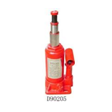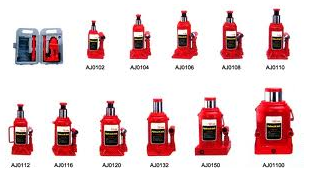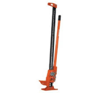Is This a Safe Way to Jack a Vehicle?
What’s wrong with this picture?

While it might be rather clever, using an easy chair as a jack stand to support a car is the kind of safety shortcut that can get your workers killed and your company a big, fat OSHA fine.
Moral: Jacks used to horizontally lift, lower, or move a load (like the vintage VW station wagon in this photo) must meet specific requirements set out in the OSHA Other Portable Tools and Equipment Standard (Section 1910.244).
JACK STAND SAFETY
WHAT’S AT STAKE
Meet the Late Christian Klorcyzk
On March 11, 2011, Christian Klorcyzk of Waterford, CT, was doing what he loved best: tinkering with cars. He was changing the oil of a BMW E46 3 series xi using a set of four-ton jack stands to support the vehicle.
Unfortunately, the stands didn’t have the proper safety pins. So when something tripped the right front jackstand from the underside, over a ton’s worth of car crashed into his skull and chest, instantly ending his life.
Christian was only 21.
USE THE RIGHT JACK
6 Kinds of Car Jacks
Safe use of car jacks begins with knowing what kind of jack to use. There are 6 basic types:
1. Mechanical Car Jacks

2. Floor Car Jacks

3. Hydraulic Car Jacks

4. Pneumatic Car Jacks

5. Farm Car Jacks

6. Garage Car Jacks

DON’T LET THIS HAPPEN TO YOU
8 Jack Stand Safety Tips
When Using a Jack Stand:
- Follow the manufacturer’s safety instructions
- Jack the vehicle on a level surface, not an incline
- Find the vehicle’s “curb weight”
- Check the jack’s load capacity and make sure it’s rated to support that weight
- Make sure the parking brake is on the vehicle to prevent the wheels from moving while it’s supported on the jack
- Install the jack on a solid, structural piece of the vehicle frame so the jack doesn’t slip
- Test your jack stands before each use
- Ask your supervisor for help if you have any questions or concerns